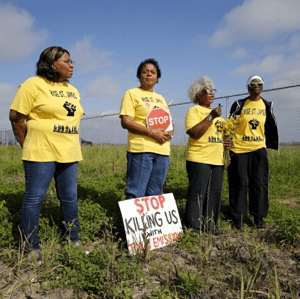In a stark reversal of environmental justice policies, the Trump administration has eliminated federal initiatives aimed at addressing health disparities in minority and low-income communities. The move dismantles years of progress in tackling the disproportionate impact of pollution on Black, Latino, and economically disadvantaged Americans.
The administration’s actions include scrapping the White House environmental justice advisory team and terminating the “Justice40” program, which directed 40% of certain environmental program benefits to hard-hit communities. These changes effectively end the federal government’s focused efforts to improve health conditions in areas burdened by heavy industry, ports, and high-traffic roadways.
Environmental justice advocates warn that the policy shift will have far-reaching consequences. Without targeted federal support, communities already struggling with higher rates of pollution-related health issues may face even greater challenges. The EPA’s previous efforts had made significant strides, including issuing the largest-ever fine under the Clean Air Act and reducing over 225 million pounds of pollution in overburdened areas.
Critics argue that the administration’s actions ignore decades of research showing that Black Americans, regardless of income level, are more likely to breathe air pollution linked to heart and lung problems. The reversal also halts the flow of federal grants that helped clean up Superfund sites and funded low-emission school buses in affected neighborhoods.
As the federal government steps back, environmental justice organizations are preparing to shift their focus to state and local advocacy. However, experts caution that this approach may face significant hurdles in Republican-controlled states less receptive to such initiatives.
The policy change marks a return to pre-Clinton era environmental regulations, potentially undoing years of progress in addressing the complex intersection of race, poverty, and environmental health. As communities brace for the impact, the long-term consequences of this shift in environmental policy remain to be seen.
“In policy reversal, Trump eliminates help for Black and Latino communities hit harder by pollution” (January 26, 2024)



